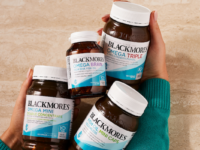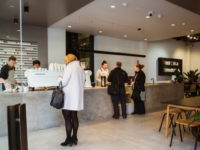 Alibaba Group reported 54 per cent year-on-year growth in revenue at its September Quarter 2018 results on Friday. The strong growth comes ahead of its annual 11.11 Shopping Festival on November 11, 2018 which will feature 180,000 brands.
Alibaba Group reported 54 per cent year-on-year growth in revenue at its September Quarter 2018 results on Friday. The strong growth comes ahead of its annual 11.11 Shopping Festival on November 11, 2018 which will feature 180,000 brands.
Alibaba announced its core e-commerce revenue, which accounts for 84 per cent of the total, rose 56 per cent to RMB72,475 million (US$10,553 million) in the second quarter.
“Alibaba had another strong quarter of rapid growth. In particular, annual active consumers increased by 25 million to reach 601 million in the 12 months ended September 30, 2018,” said Daniel Zhang, CEO of Alibaba Group.
“We generated synergies across our businesses, demonstrating the power of the Alibaba digital economy, which will be further showcased during our upcoming 11.11 Global Shopping Festival. Under our New Retail strategy, we are realizing our vision to enable renewed growth for traditional retailers through digitising their store-based operations, powered by Alibaba’s technology and consumer insights.”
Alibaba’s chairman Jack Ma hinted in his recent letter to shareholders, that the e-commerce giant in China is set to continue its growth in the region. It has continuously announced innovations in its leading platforms of Tmall, Cainiao, Hema, Ele.me, Koubei, etc.
Alibaba focuses on New Retail strategy optimised by technology innovations. Its Hema supermarket and robot restaurant in China continue to expand and introduce new initiatives to enhance consumer experiences. Currently there are 77 Hema stores in China where it offers shoppers a 30-minute on-demand delivery service for fresh foods and groceries.
“We are making good progress in digitising partner retailers and enabling their New Retail model. For example, our partner Sun Art, the largest hyper-mart chain in China, has adopted our technology and is working closely with us in on-demand delivery, joint procurement and supply chain management,” added Alibaba in a statement.
Alibaba has opened a warehouse with over 700 robots to get packages to customers anywhere in China within 24 hours and internationally in 72 hours.
“We outpaced all industry peers by again delivering robust revenue growth of 54 per cent this quarter,” said Maggie Wu, CFO of Alibaba Group. “While the growth of our overall profitability this quarter has been tempered by significant investments in local services, logistics, entertainment and international expansion, our core marketplace business continued to show strong profit and cash flow growth, which enables us to re-invest into strategic areas and our technology.”
In October, the Chinese business partnered with Swiss luxury group Richemont, the parent company of Cartier, to launch a joint venture with Richemont-owned Yoox Net-a-Porter, an online retailer for luxury goods.
Alibaba revised its fiscal year 2019 revenue guidance to a range of RMB375 billion to RMB383 billion. The new guidance range reflects a 4 per cent to 6 per cent adjustment to the original revenue guidance.
“In light of current fluid macro-economic conditions, we have recently decided not to monetize, in the near term, incremental inventory generated from growing users and engagement on our China retail marketplaces. We expect this decision to benefit SMEs on our marketplace platforms,” added Alibaba in a statement.
















